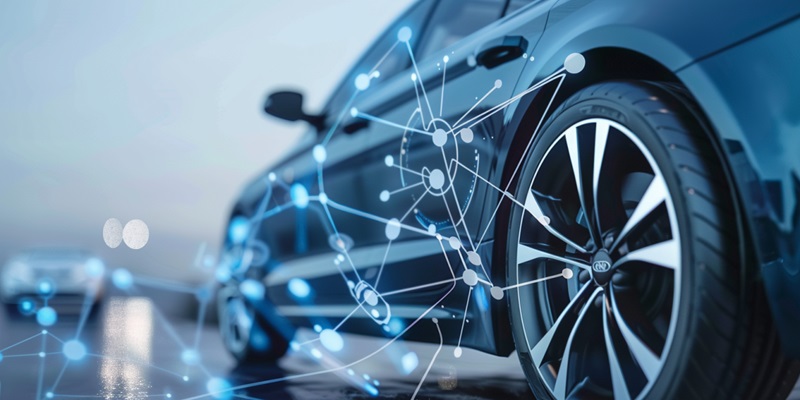In a groundbreaking move, the California Department of Motor Vehicles (DMV) has embraced blockchain technology, particularly leveraging the Avalanche network, to revolutionize the way vehicle title transfers are managed for the state’s 39 million residents. As part of this initiative, the DMV has successfully digitized 42 million car titles on the Avalanche blockchain, bringing unprecedented efficiency and transparency to the process. Soon, residents will be able to access these digital titles via the DMV’s mobile wallet app using verifiable credentials, reducing the need for in-person visits and streamlining bureaucratic procedures. The adoption of Avalanche’s smart contracts for the digital management and tracking of vehicle titles promises not only to make the process more efficient but also significantly more secure.
The integration of blockchain technology into DMV services underscores the broader trend of leveraging digital solutions to facilitate seamless online transactions. This move is not merely about keeping up with technological trends; it represents a giant leap towards modernizing public sector operations to meet contemporary needs. The DMV’s transition to blockchain is part of a more extensive strategy to incorporate this technology into various public sectors, marking a significant milestone in Governor Gavin Newsom’s vision for California. By becoming a pioneer in blockchain adoption for public services, California sets an example for other jurisdictions, showcasing how technology can be employed to enhance operational efficiency, data security, and overall public service delivery.
Enhancing Efficiency and Automation
The primary objective behind the DMV’s adoption of blockchain technology is to enhance operational efficiency and reduce the reliance on in-person services. With millions of car titles now digitized on the Avalanche blockchain, the time-consuming and often cumbersome paperwork process is significantly minimized. Smart contracts streamline the transfer and verification process, allowing transactions to be completed swiftly and accurately. This shift to a more automated system not only saves time for DMV employees but also greatly enhances the overall user experience for residents needing DMV services.
Furthermore, the integration with the DMV’s mobile wallet app provides a user-friendly interface, allowing residents to manage their vehicle titles directly from their smartphones. This level of accessibility is a game-changer, particularly in a world increasingly leaning towards digital solutions. Residents can utilize verifiable credentials through the app, ensuring secure and authenticated transactions without having to step foot in a DMV office. This convenience is especially beneficial in the wake of the COVID-19 pandemic, where minimizing in-person interactions has become a priority for public health.
Ensuring Security and Compliance
One of the pivotal advantages of utilizing blockchain technology is its inherent security features. By digitizing car titles on the Avalanche blockchain, the DMV ensures that each title is tamper-proof and easily trackable. Blockchain’s decentralized nature means that no single entity has control over the entire database, reducing the risk of fraudulent activities. This method of managing sensitive data is far more secure compared to traditional databases, where data breaches and tampering are significant concerns.
Additionally, blockchain’s ability to provide a transparent and immutable ledger ensures compliance with stringent regulatory requirements. Every transaction is recorded and timestamped, creating an audit trail that can be reviewed at any time. This level of transparency is invaluable for ensuring accountability and maintaining public trust in government operations. The DMV’s blockchain initiative not only enhances data security but sets a new standard for compliance in public sector services. Other jurisdictions can look to California as a model for how to successfully integrate blockchain technology into their operations to achieve similar benefits.
Broader Implications for Public Services
This blockchain integration reflects a broader trend towards using digital solutions for online transactions. It’s not just about following technological advancements; it’s a major step towards modernizing public sector operations to meet current demands. The DMV’s move to blockchain is part of a large-scale strategy to integrate this technology across public sectors, aligning with Governor Gavin Newsom’s vision for California. As a trailblazer in blockchain for public services, California sets a benchmark for other regions, demonstrating how technology can improve operational efficiency, data security, and public service delivery.

